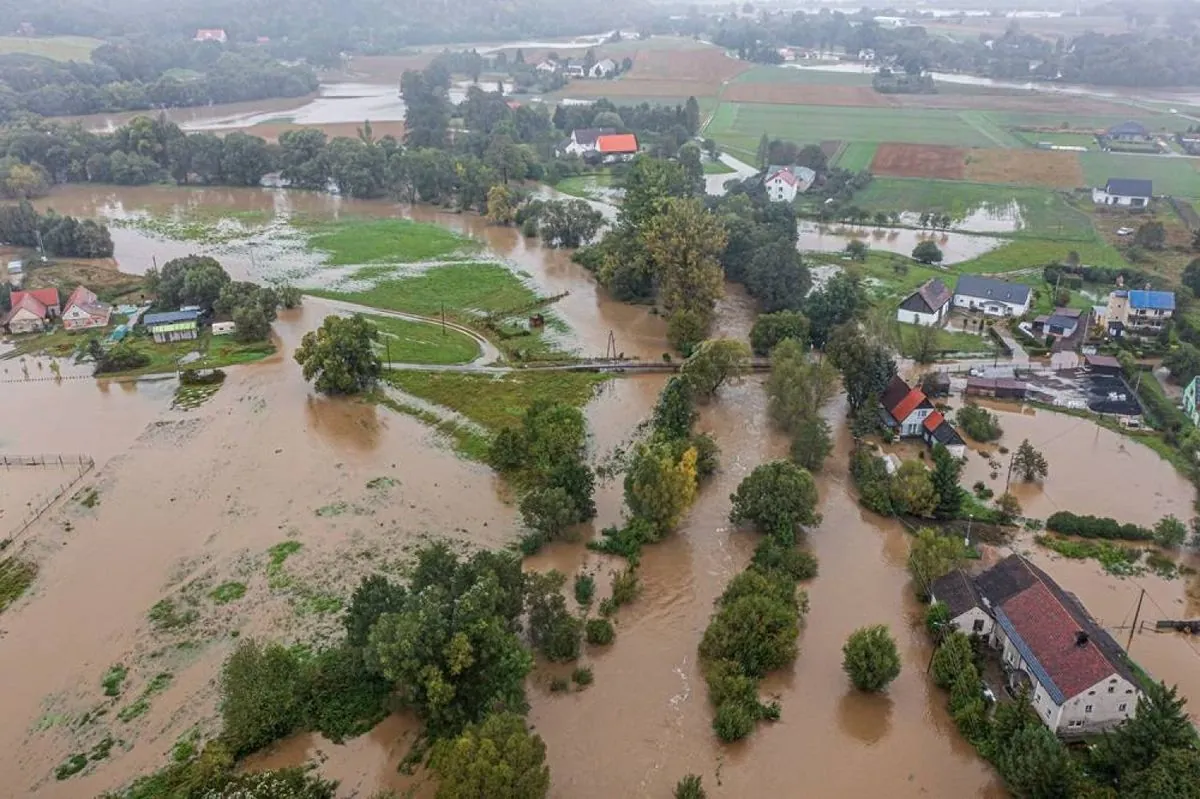Central European nations are currently facing a severe flooding crisis, with rising death tolls and widespread evacuations. The disaster, triggered by heavy rainfall since September 12, 2024, has affected multiple countries, including the Czech Republic, Austria, Poland, and Romania.
In the Czech Republic, authorities have issued the highest flood warnings in approximately 100 locations across the country. The northeastern regions, particularly near the Polish border, have experienced the most significant rainfall. Tomáš Navrátil, mayor of Opava, stated that the current situation surpasses the devastating floods of 1997, known as the "flood of the century."
"The worst is not behind us yet."
Up to 10,000 residents of Opava, which has a population of around 56,000, have been instructed to evacuate to higher ground. The city of Ostrava, the third-largest in the Czech Republic and capital of the Moravian-Silesian Region, is experiencing major traffic disruptions due to the flooding.
In Austria, the entire state of Lower Austria has been declared a disaster zone. Tragically, a firefighter lost his life while assisting with flood relief efforts in Tulln, a historic town on the Danube River. Approximately 1,100 houses have been evacuated, and 10,000 relief forces have been deployed. The municipality of Lilienfeld, home to the largest Cistercian monastery in Europe, is currently isolated due to the flooding.
Poland is also grappling with dramatic flooding situations. Prime Minister Donald Tusk described the conditions as "dramatic" around Klodzko, a historic town known for its 17th-century fortress. In Jelenia Gora, a city renowned for its baroque and art nouveau architecture, downtown streets are submerged after the Bobr River's embankment burst.
Romania has reported additional flooding victims, bringing the total death toll to six. The eastern county of Galati has been particularly hard-hit by the unprecedented rainfall.
The recent flooding follows Earth's hottest summer on record in 2024, breaking the previous record set in 2023. Scientists have noted that human-caused climate change can lead to more intense rainfall events, as a hotter atmosphere can hold more moisture.
As the crisis continues to unfold, authorities are utilizing various resources to manage the situation. In some affected areas, the satellite-based Starlink internet service may be employed to maintain communications where traditional infrastructure has been compromised.
The flooding has caused significant damage to infrastructure, with roads turned into rivers and bridges collapsing under the pressure of floodwaters. The Oder River, which forms part of the Poland-Germany border, has reached extreme levels in several locations.
As Central European nations continue to battle this natural disaster, the focus remains on saving lives and mitigating further damage. The coming days will be crucial as authorities work to manage the ongoing flood risks and begin the process of recovery and reconstruction.
